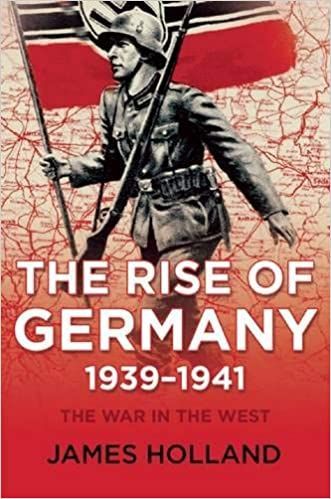
The Rise of Germany, 1939-1941
Much of what we think we know about World War II is steeped in myth rather than fact. For seven decades, we have looked at this cataclysmic conflict in much the same way, particularly when it comes to the war in the western theater. In this sweeping narrative history, the first of three volumes, British historian and contrarian James Holland deploys deep research, incisive analysis, and a profound sense of humanity to revise and enhance our understanding of one of the most significant events in history. It is commonly held that at the outset of war, Germany had the best army in the world, and that Britain barely managed to hold out against it until the Americans declared war and overwhelmed Nazi military prowess with economic might. But the picture looked much different in 1939: In advance of its Polish offensive, Germany was short on resources, tanks, and trained soldiers. Meanwhile, Britain and France had more men in uniform than Germany and considerably greater naval power, and Britain was the richest country in Europe with a massive empire at its disposal. Hitler was bluffing when he called for the wholesale destruction of Poland, but his bet that Western Europe wouldn't get involved turned out to be fatally wrong. Beginning with the lead-up to the outbreak of war in 1939 and ending in the middle of 1941 on the eve of the Nazi invasion of Russia,The War in the West, Volume I covers the war on several levels, from fascinating tactical revelations—blitzkrieg, Holland argues, is a myth—to the personal stories of a German U-boat captain, a French reserve officer, a son-in-law of Mussolini, an American construction tycoon, and civilians across the war zone. This is a major history, destined to generate significant scholarly debate and reader interest.